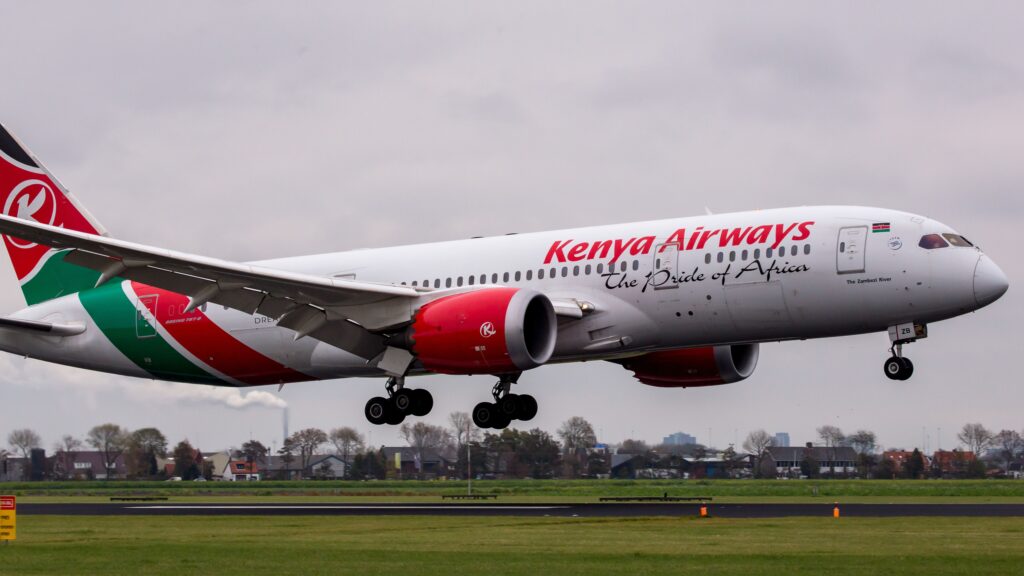
Plane | courtesy.
A report released today by the International Air Transport Association (IATA) has revealed that aviation contributed Ksh425 billion (USD 3.3 billion) to Kenya’s Gross Domestic Product (GDP) in 2023, accounting for 3.1 percent of the total GDP.
According to the report, the sector also supported 460,000 jobs across the value chain, including those created directly by airlines, through the wider supply chain, employee spending, and tourism-related activities.
The findings were unveiled as Nairobi hosts the 37th IATA Ground Handling Conference (IGHC),the first time this global aviation summit is being held in Africa.
According to the IATA report, Kenya also ranks as the 35th largest air cargo market in the world, with 380,000 tonnes of freight transported in 2023. These figures underscore the strategic role the country plays as a transport and logistics hub in the region. Speaking on the report’s findings, IATA Director General Willie Walsh emphasized the transformative impact of aviation on Kenya’s economy.
“With Africa’s aviation market projected to grow at 3.7 percent annually over the next two decades, the opportunity for even greater economic and social impact is enormous,” he said. “However, achieving this potential will require efficient, cost-competitive infrastructure, a skilled workforce, and a firm commitment to achieving net-zero carbon emissions by 2050.”
READ: KQ, Qatar Airways Ink MoU to Boost Regional, Global Connectivity
Kenya Airways CEO Allan Kilavuka welcomed the report, highlighting the significance of hosting the IGHC in Nairobi. “Hosting the IATA Ground Handling Conference here in Nairobi at this crucial time provides a vital platform for us to collaboratively tackle the challenges and opportunities highlighted in this study.”
The conference, which brings together aviation leaders, industry experts, and government representatives, is focusing on modernizing operations, investing in workforce development, and fostering enhanced collaboration and coordination across the sector.
The goal is to create a more efficient, safe, and competitive aviation environment in Kenya and across Africa.
IATA has emphasized the need for continuous collaboration between airport authorities and airlines to develop infrastructure that meets global standards and is both efficient and cost-effective. Such infrastructure is crucial to strengthening Kenya’s position as a leading aviation hub in East Africa.
Tools like the Ground Operations Manual (IGOM) and the IATA Safety Audit for Ground Operations (ISAGO) are essential for ground handling service providers. In 2024, ISAGO reached a record 400 station accreditations globally, delivering significant savings and improving operational consistency.
Additionally, the report calls for enhanced passenger and cargo facilitation through full implementation of Kenya’s Electronic Travel Authorization (eTA) system and a comprehensive digitalization strategy. This will strengthen Kenya’s competitiveness as a regional hub and improve its appeal for international travel and trade.




